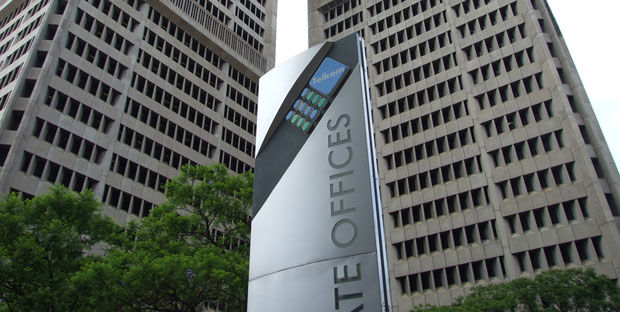
Telkom’s share price was down by nearly 6% in late afternoon trading on the JSE on Friday after it announced that government would not support its proposed plan to sell 20% of its equity to Korea’s KT Corp under the terms put forward.
The share has declined to levels last seen in 2003, shortly after the company listed on the stock market. Friday’s slump comes on top of a sharp decline in Telkom’s share price on Thursday as investors fretted about the impact of its removal from a key investment index. It was removed from the MCSI SA index on Friday because of a sharp decline in its market capitalisation in the past year.
In the past year, Telkom’s share price has fallen by 36,4%, despite evidence that CEO Nombulelo Moholi is enjoying some success in improving customer service levels and reversing some of the poor decisions made by her predecessors. Concerns about a possible multibillion-rand fine by the competition authorities have also weighed heavily on the share, which has fallen by nearly a quarter in the past six months alone.
Telkom said on Friday morning that it had been informed that cabinet had decided not to support the proposed KT Corp transaction, at least not on the terms proposed.
Government has not explained why cabinet did not approve the deal. Cabinet spokesman Jimmy Manyi referred TechCentral to the department of communications for comment; communications minister Dina Pule’s spokesman, Siya Qoza, said the minister was in a meeting and was not immediately available for comment.
In May, KT Corp cut its proposed offer price for the Telkom stake to R25,60/share, down from the R36,06 that had been proposed when Telkom first announced the discussions by way of a statement to shareholders on 14 October 2011.
The Korean company also attached a new pre-condition to its proposed investment: the right to walk away from the deal if it didn’t like the outcome of the investigation by the competition authorities into Telkom’s past practices.
The transaction, if it had been approved, would have seen Telkom issuing new ordinary shares, diluting all shareholders’ effective stakes in the company.
Government’s direct stake would have been whittled down from about 40% to about 33%. The PIC, which invests government employees’ pension money, holds just under 11% of Telkom’s equity. — (c) 2012 NewsCentral Media




